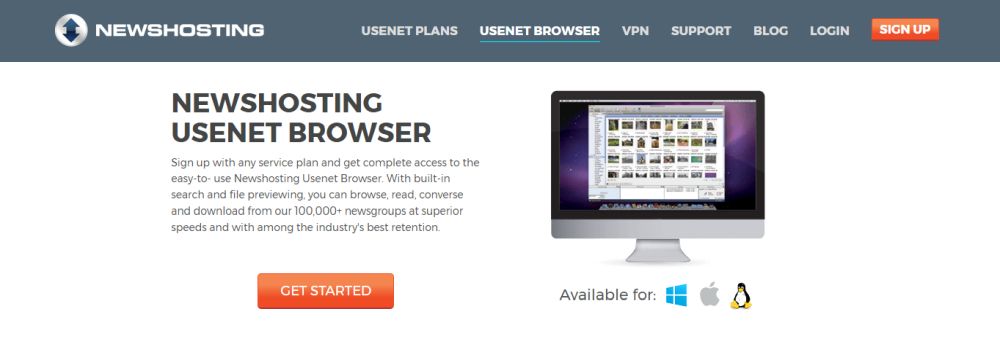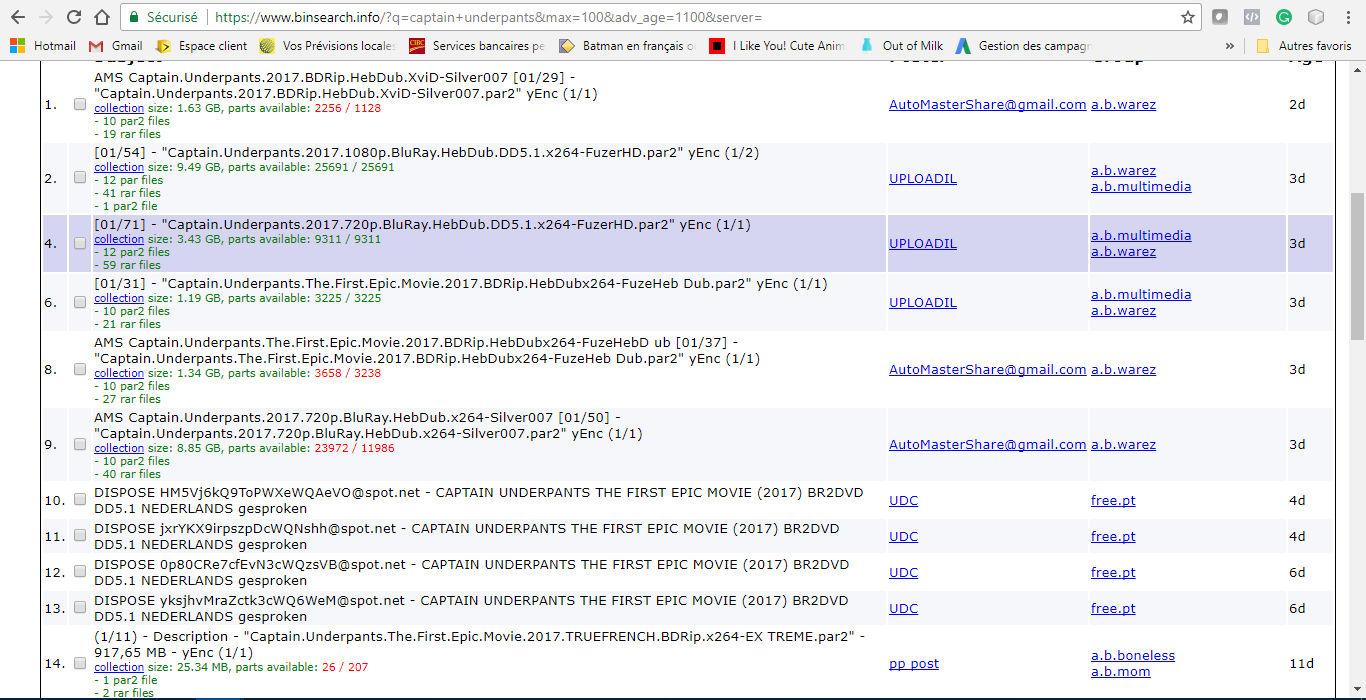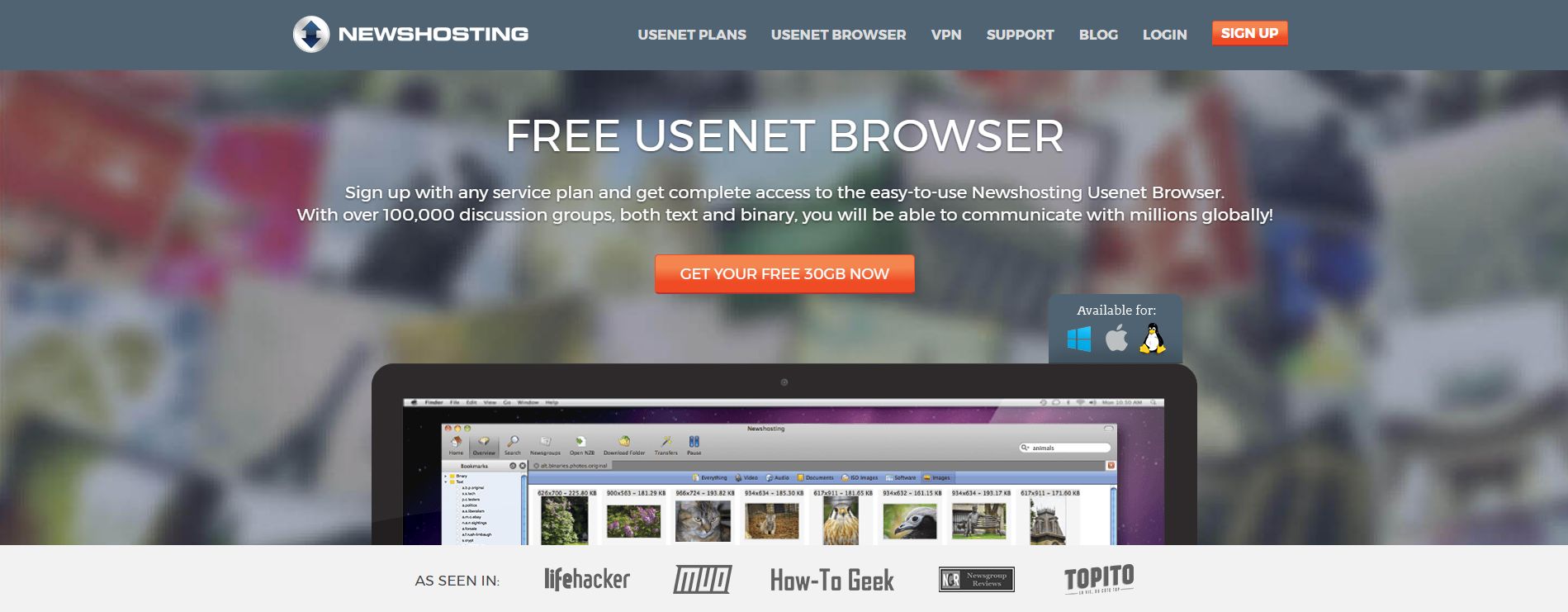What is Usenet? Is it Legal? How to Get Started
When looking to download files of all sorts, including videos and shows, torrents are often the first option that comes to mind. It works well, it’s been around for almost ever and it has proven its value. In the past few years, though, another option has surfaced that appears to be an even better way to download content: Usenet.
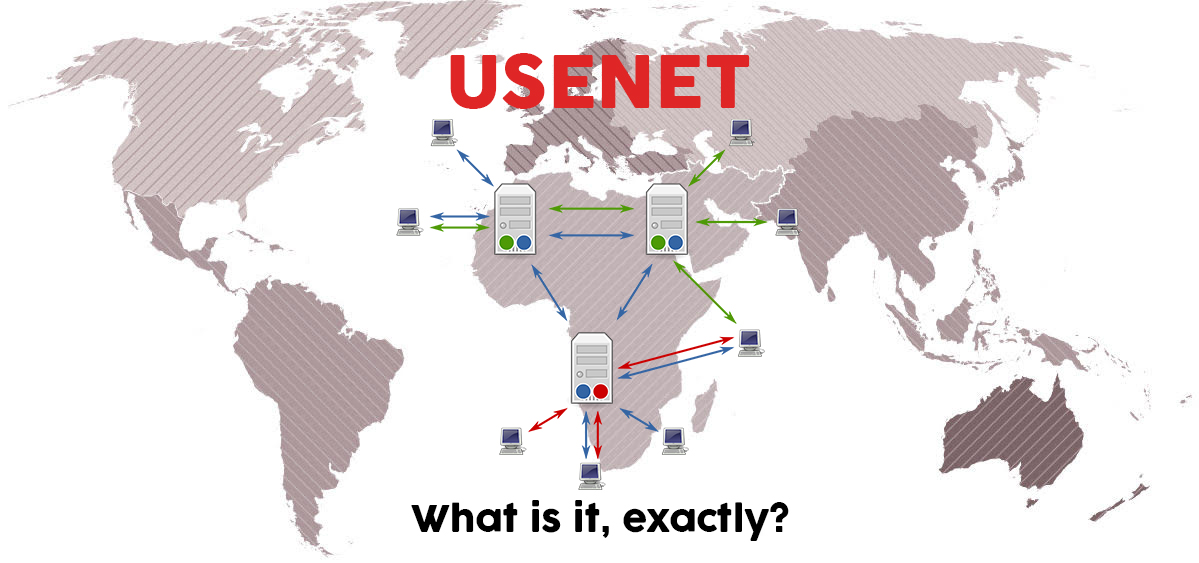
Today, we’re taking a detailed look at Usenet. We’ll tell you what it is, where it’s coming from and where it’s at nowadays. We’ll also try to answer everyone’s burning question: Is it legal?. Then, we’ll show you what you need to get started with Usenet. And since this discussion will likely leave you with tons of pending questions, we’ll try to answer the most common ones.
For the best Usenet Experience, We Recommend Newshosting
To get started with Usenet, the first thing you need is a reliable Usenet service provider. With so many suppliers available finding one can be a daunting task. We’ve tested several of them for you and found Newshosting to be the one we’d recommend.
Newshosting offers 256-bit SSL encryption to better protect your privacy, a built-in, full-featured newsreader to eliminate the need for any extra software, one of the longest file retention of any Usenet provider so you can find more content and many more excellent features.
NewsHosting offers a 14-day trial to test it risk-free. Please note that Addictive Tips readers can enjoy unlimited Usenet and VPN from just $8.33 a month with our discount.
What is Usenet, Exactly?
There’s no simple answer to that question. At its root, Usenet is a protocol for exchanging news. At least, this is what it originally was. Today, it is used mostly to exchange files. Its purpose is, therefore, somewhat like torrents but they way it works is completely different.
Whereas torrents are a P2P system with each user sharing files–or bits of files to be precise, Usenet uses a client and server architecture. All the files are uploaded to servers and downloaded from there using a client software called a newsreader.
Usenet is somewhat similar to discussion forums like we commonly see on websites. In fact, Usenet is the precursor of discussion forums. As such, everything is based on messages which can contain either text of binary files. Usenet users can upload or post messages and files as well as they can download them. These messages and files are stored on Usenet servers, also called news servers. There are numerous servers throughout the world and they constantly replicate their contents with each other, ensuring that a post done on one server will be available on other servers.
Hierarchical Organization
Usenet posts are organized in newsgroups. There are literally hundreds, possibly thousands of newsgroups and users can add some as they need. They are organized in a hierarchical fashion that s represented using a dotted notation. The top-level hierarchy is divided as follows:
- comp.* – computer-related discussions (comp.software, comp.sys.amiga)
- humanities.* – fine arts, literature, and philosophy (humanities.classics, humanities.design.misc)
- misc.* – miscellaneous topics (misc.education, misc.forsale, misc.kids)
- news.* – discussions and announcements about news (meaning Usenet, not current events) (news.groups,
- news.admin)
- rec.* – recreation and entertainment (rec.music, rec.arts.movies)
- sci.* – science related discussions (sci.psychology, sci.research)
- soc.* – social discussions (soc.college.org, soc.culture.african)
- talk.* – talk about various controversial topics (talk.religion, talk.politics, talk.origins)
- alt.* – anything that won’t fit in the other categories (alt.binaries.* is where you’ll find most file uploads and downloads)
While this hierarchy seems to make finding anything “easy” it doesn’t. In fact, unless you know exactly where to look for something, chances are you won’t find it. To solve this problem, there are web servers that index binary content from news servers and provide a search engine. We call these NZB servers or search engines. With Usenet messages being often limited in size, large files need to be split into smaller parts. NZB servers also track all the parts and ensure you’ll get all the parts of any file you try to download.
Some Background History
Usenet is one of the oldest services on the Internet. Invented in 1979, it predates the world wide web by at least 10 years. It was once the way Universities and government research facilities shared information. Back then, every university hosted a news server which all replicated their content during the night. It was, like most of the Internet of then, a freely available service to students and researchers.
As the Internet became more widespread and went into commercial use, Usenet servers started appearing in all sorts of places. Many Internet service providers had them and some commercial entities as well. They opened them to the general public and things quickly got out of hand. The Usenet eventually became the place to store and exchange any kind of illegal content. In the late 1990’s it became (in)famous for primarily hosting pirated software and child pornography.
Reacting to this, news servers administrators started to block controversial newsgroups and deleted their content from their servers. By then, other means of communications had surfaced and scholars were no longer relying on Usenet as their primary means of communication. It consequently went out of favor and almost totally disappeared.
The State of Usenet Today
Today, Usenet seems to be back but with a different purpose. With public organizations and ISPs no longer offering Usenet service, some commercial suppliers started offering it… for a fee. It’s still the same protocol, the same architecture and the same replication scheme between servers but customers use it to store and download all sorts of files. Just like with torrents, you can find video files as well as applications on Usenet.
Is Usenet Legal?
This is a hard question to answer. We, at AddictiveTips, are no legal advisors. Furthermore, laws do vary from location to location. One thing we can say for sure it that, in most jurisdictions, using Usenet is totally legal. It is what you do with it that might not be. Just like owning–and even carrying–a firearm is legal in many places, using it to commit a crime is prohibited.
The same goes for Usenet, if you use it to break the law, you’ll be exposed to consequences. But if you use it to upload and/or download content that is in the public domain or that you have acquired rights to, you’re probably not breaking any law. We strongly advise you to consult a legal advisor who is familiar with your local laws to ensure you don’t break any of them.
DISCLAIMER: AddictiveTips.com does not condone or recommend the use of any means to access copyrighted content to which you have no right. We’re not responsible for what you decide to do with the contents of this article. Piracy is not something we support or approve, and we strongly advise users to only access content they are legally entitled to. You must always take steps to ensure you are not in breach of any copyright or other law.
What do I Need to Get Started With Usenet?
We’ve rounded up what components are necessary and we’ll introduce each one, explaining what it is and why you need it. You basically need three things to start using Usenet: access to a news server, some newsreader software, and an NZB search engine
Usenet Server Access
The first component needed to get started with Usenet is access to a news server. Nowadays, this is something you have to pay for and there are several suppliers offering the service. Here’s a list of the most well-known Usenet providers.
Newsreader Software
The next component you need is some newsreader software. There used to be many of them but today, they’re a bit more scarce and harder to find. Fortunately, most Usenet suppliers today will include newsreader software with their subscription.
It is often preferable to use the software that your provider supplies at it is often custom tailored to their service and should give you the best experience.
Usenet Search Engine
The last component you need is a search engine or an NZB server. There are two ways to go about this. First, chances are that the newsreader supplied by your provider includes some search functionality.
For instance, the Newshosting main window has a search box at the top right. If, for instance, we were to search for a movie title, say Captain Underpants, here’s what the results would look like.
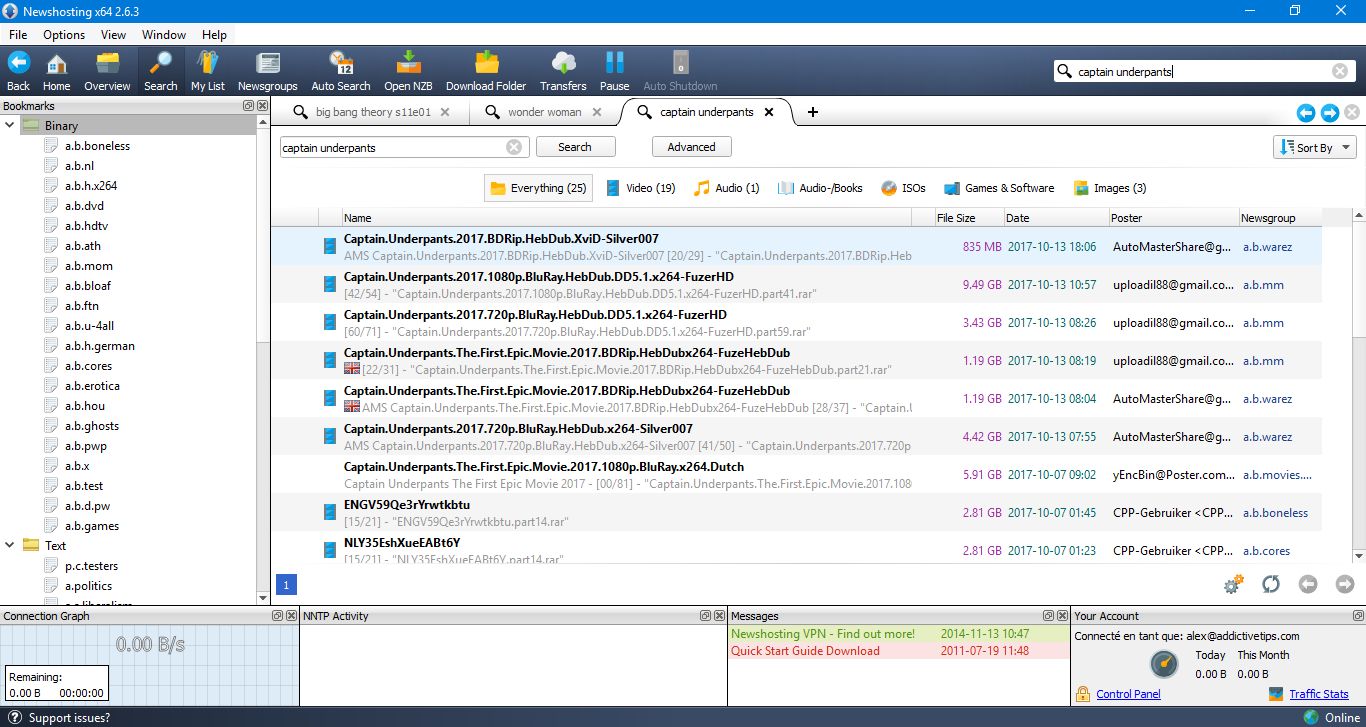
Double-clicking any search result would start the download of all the parts comprising the file. Furthermore, the software will also take care of reassembling all the parts into a complete file.
The other option for searching is to use an external index. There are several websites that offer what we call NZB indexes of newsgroups. Here’s a list of the best ones to get you started.
The first two options offer free access to anyone but the other three will require you to register to use the service. Registration is free and is done for security purposes.
As an example, let’s search for Captian Underpants again but this time using the Binsearch NZB server. You need to go to the site and enter your search terms.
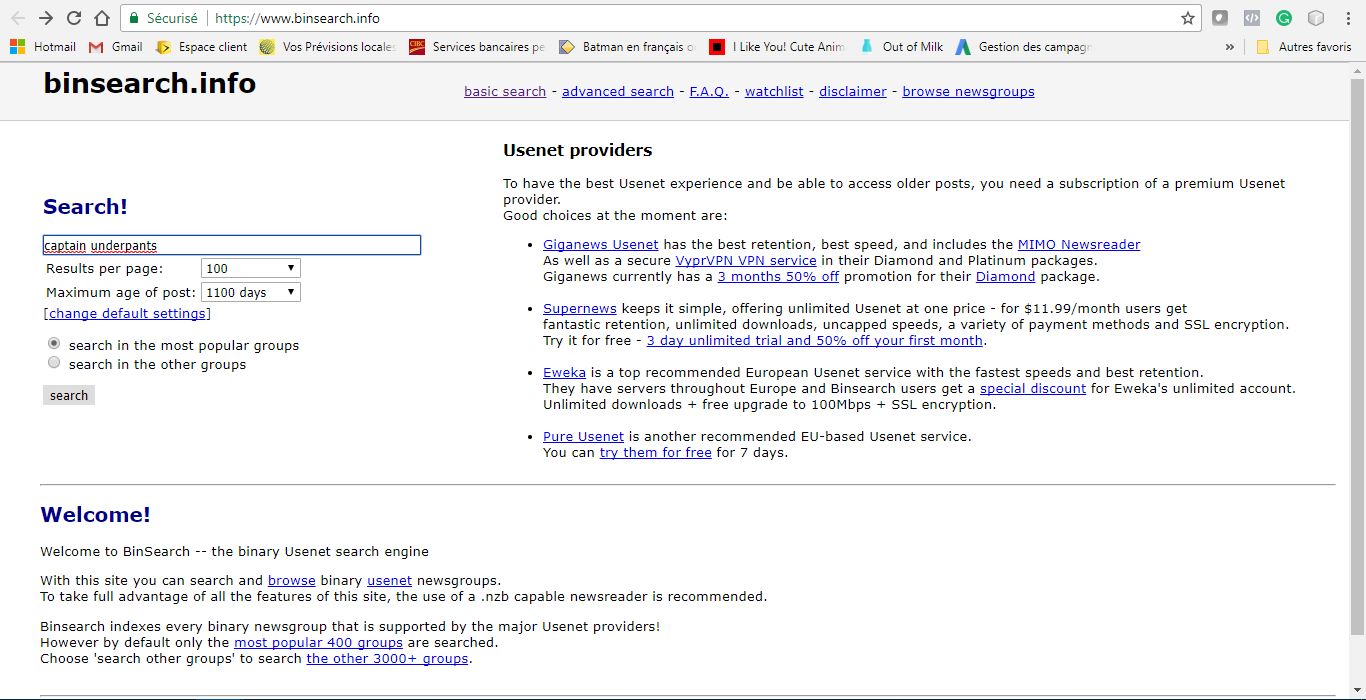
Once you’ve entered your search term, just click search and the results will be displayed.
To download any file, you need to check the box to the left of the search result line and then click the Create NZB button at the top or the bottom of the screen. A dialog box will pop up, prompting you to save the .nzb file. Save it to a location of your choice.
Now, to download the actual file, you need to double-click it and with most Usenet software, the download will automatically start.
This seems to be a bit more complicated than using your news reader’s search feature. Why then, would you want to use an external search? There are mainly two reasons: First, the search capability of your newsreader software might not be that good. More importantly, the search function from your Usenet supplier’s software will often only search amongst what they have on their servers whereas external search engines will often search multiple sources.
Wanna Quickly Get Started With Usenet?
If you want to quickly get started with Usenet, we’ve evaluated many suppliers for you and the one we’d recommend as the best Usenet provider is Newshosting. They offer 256-bit SSL encryption, a built-in newsreader with a very capable search engine, the longest file retention of any Usenet provider, unlimited speed and data transfer as well as other great features.
NewsHosting offers a 14-day trial to test it risk-free. Please note that Addictive Tips readers can enjoy unlimited Usenet and VPN from just $8.33 a month with our discount.
Usenet FAQ
Is Usenet free?
Using Usenet requires access to a news server which is a paid subscription-based service. There used to be free and publicly available servers years ago but it is no longer the case.
Is Usenet better than Torrents?
Whether Usenet is better than torrents or not is mostly a matter of personal taste. One thing we can say for sure is that it is usually faster; much faster. Usenet servers are rarely limited in speed and bandwidth and you will normally be able to download files at the maximum speed allowed by your Internet Service Provider.
Another area where Usenet is better than torrents is security. By virtue of being a peer to peer system, Torrents open your computer to other computers, increasing the risk of malicious activity. With Usenet, your computer only connects to a secure server and all communication is encrypted.
How do I find a specific file on Usenet?
There are primarily two ways to find specific content on Usenet. You can use your newsreader’s built-in search function. Your experience will vary depending on your service provider as their search engines are not all created equal. The other option is to use an external search engine that will let you download NZB files that your newsreader will use to download the file.
The other option is to use an external search engine that will let you download NZB files that your newsreader will use to download the file. The NZB file contains details about where to find each part of the file and how to reassemble it.
Can I download as much as I want from Usenet?
That depends on your supplier and your subscription. Most suppliers have different subscription levels at different prices. The more you pay, the more you’ll be able to use. With most suppliers, the top level subscription included unlimited file transfers.
How do I upload content to Usenet?
This is something that is done from your newsreader software but it is somewhat more complicated than searching and downloading files. It is also dependent on the software you use. A search on the Internet or a look at your newsreader’s documentation should provide the necessary information.
What can I do when a download fails?
Downloads can fail for many reasons. Files often come and go as Usenet provider receive DMCA takedown requests for copyrighted content. In other cases, the file might have exceeded your supplier’s retention period. When that happens, it could still show up on NZB search results because other suppliers might still carry it. Having two different providers could help when this happens. Trying a slightly different search or selecting a different search result might also help if the problem is due to a corrupted file.
Conclusion
Usenet has become more and more popular in the past few years. This is probably due to its speed and inherent security. It provides a very interesting alternative to torrents. And once you get past its learning curve, using it is actually not much different from using torrents. Just like with torrents, you need to use a search engine to find what you’re looking for and then download a file that will tell your newsreader where to find the file you want to download.If you’re willing to pay the price for the added speed and security, Usenet might be just what you need.
You still need to be careful and take steps to ensure you’re not breaking any laws, though. Just because you’re paying for a service does not mean you can do anything with it.
Are you a Usenet user? What do you like and dislike about it? Also, do you have any question we haven’t answered? Use the comments below to share your thoughts and questions with us.
